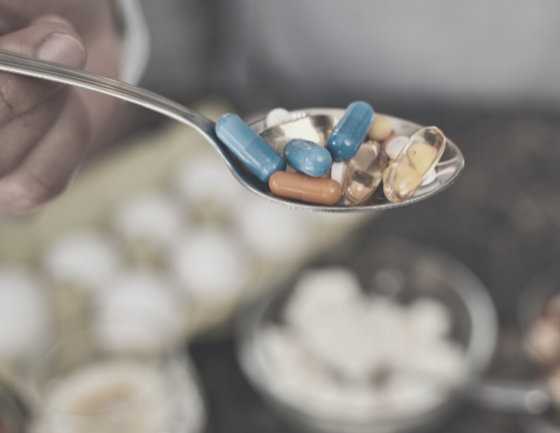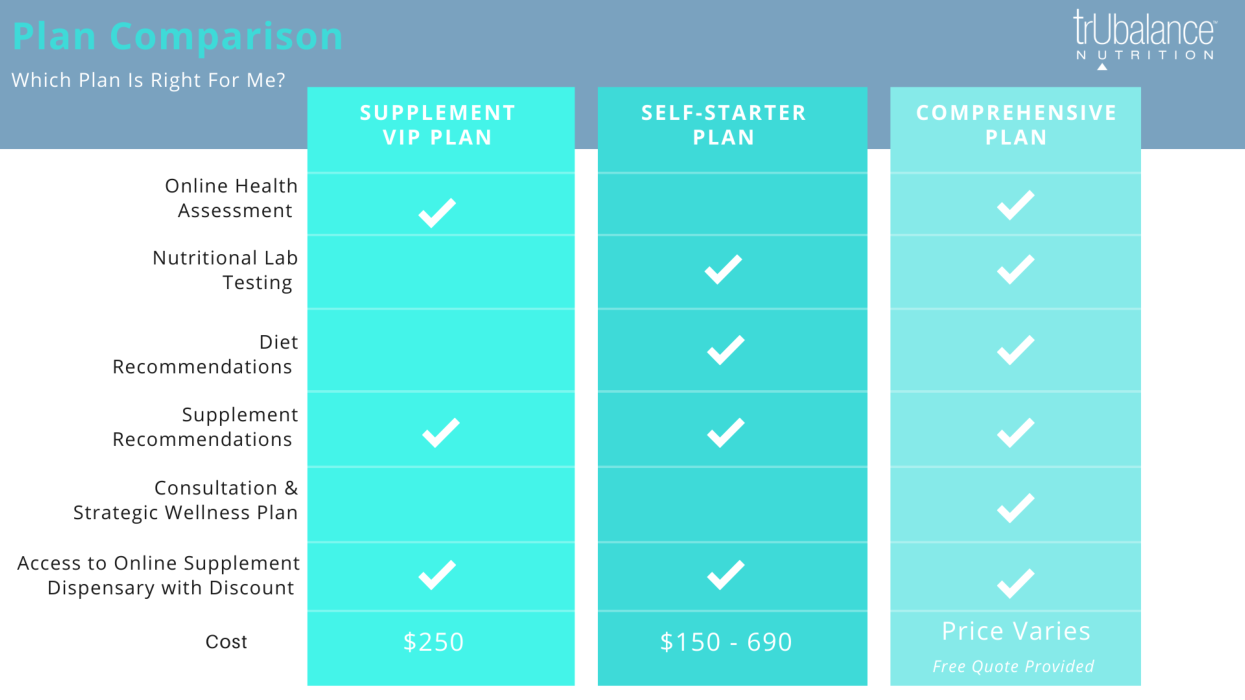With the right individualized, athlete-focused biomarker testing, nutrition, and supplementation you can elevate your game.
Often, I see athletes pumping powders and supplementing with specific vitamins or minerals without professional individual advice. They overdose with the “more is better” approach and create an unhealthy balance in the body that can produce harmful effects and hinder performance. It is important to understand that the correct macronutrient AND micronutrient balance is the only way to optimize performance.
My diet and supplement prescriptions are developed after gathering a full picture of health for each athlete. Vitamin and mineral needs vary greatly from athlete to athlete, sport to sport, position to position. I provide supplement specifics on brands, dosage and duration. I only recommend researched-based supplements that are tested and certified by NSF Certified for Sport. Most importantly, I never make guesses as to what my athletes need. Instead, I use lab testing to determine nutrient needs.
Athletic Performance Solutions
Micronutrient Testing – If you want to have optimal energy and enhance muscle contraction and power, you will need to correct your nutrient deficiencies. This test determines exactly what vitamins, minerals, antioxidants, and amino acids you are lacking.
Food Sensitivity Testing – Digestive issues, pain, and/or reoccurring health issues predominantly due to inflammation will hinder your performance. This testing will determine exactly what foods are contributing to your health concerns.
GI MAP– During exercise, blood flow moves away from the gut to the working muscles. This disrupts the natural function of the gut which causes inflammation compromising the lining. The GI MAP test identifies gut imbalances. Then I can provide the necessary extra support that athletes often need to eliminate symptoms (diarrhea, constipation, gas, bloating, nausea, heartburn).
Hormones – Symptoms such as low mood, low immune function, poor sleep, irregular or no period, decreased libido, and muscle fatigue can indicate that you are overtraining and under-recovering. This can disrupt natural cortisol release, which can disrupt other hormones.
Diet Prescription
Pre-Performance Foods & Fluids:
An athlete needs to eat to avoid hunger and low blood sugar during exercise. The muscles and the brain need a constant supply of glucose to function. If the blood sugar falls too low, fatigue, light-headedness and poor mental functioning will result. Eating sufficient carbohydrate, a day or more before competition will increase the body’s supply of glycogen, the storage form of carbohydrate. This will provide a continual supply of glucose during exercise. Food eaten within an hour of competition also provides glucose to exercising muscles, the brain and nervous system. Selecting the best foods to meet the body’s need for energy is crucial.
5–60 Minutes Before a Performance:
It is all about timing when eating sugary foods before performance. Some athletes perform well or even improve their performance when they eat pre-exercise sweets; some athletes experience a drop in blood sugar when they eat sweets 15 minutes to two hours before exercise. Eating sweets five to 10 minutes prior to exercise is your best bet because the body will not have enough time to produce excess insulin, the hormone that causes blood sugar to drop. Once you start exercising, the body stops secreting insulin.
Tolerance of these food items greatly depends on the athlete. Experiment with foods and drinks in practice to determine the best timing and your tolerance for pre-performance foods. It is also recommended to make your own sports drink to avoid food dyes and added sugar to avoid potential food sensitivities which could negatively affect your performance.
60 minutes to two hours before the event:
This won’t increase glycogen stores, but it will increase the blood glucose level to supply exercising muscles with fuel. A good snack is higher in carbohydrate, moderate in protein and low in fat. A carbohydrate meal is easily digested and provides glucose for exercising muscles. Why should you not eat a high-protein meal (more than 20 grams protein)? Protein does not provide quick energy. Excess protein increases water loss from the body and can increase the risk of dehydration.
Eating for Recovery:
To restore fluid and electrolytes (sodium and potassium) lost in sweat, weigh yourself before and after a performance and replenish what was lost. If you have two performances per day or your next performance is within eight hours, recovery nutrition is crucial. If you do not have an appetite following a performance, choose liquid foods that meet your recovery goals. Protein, along with carbohydrate, fluid, and electrolytes, is an important part of recovery, particularly if you participate in high intensity activities. Begin nutrition recovery with a nutritious snack or meal within 0 to 30 minutes following a performance.
Supplement Prescription
Protein Powders/Amino Acids – These may be beneficial if your body is lacking in one or more of these essential amino acids. Using amino acids incorrectly can cause dehydration and can tax the kidneys.
Vitamin C – Vitamin C is responsible for reducing muscle soreness and aid in muscle repair.
Carnitine, CoQ10, Magnesium, and B vitamins (B1, B2, B3, Biotin, and B6) – These micronutrients are needed for energy production.
Calcium, Vitamin D, Iron, Magnesium, Zinc, and Potassium – These are common deficiencies seen in athletes.
Omega 3 Fatty Acids – Omega-3 fats can decrease cell death in the brain, grow healthy neuronal tissue in response to injury and reduce oxidative stress. Omega-3 fats are one of the most powerful anti-inflammatory nutrients available, especially as concussions are on the rise.
Antioxidants (glutathione, vitamin E, C, A, Selenium, carotenoids) – When you have an intense training session or competition you put your body through extensive oxidative stress that damages your tissues, decreasing recovery time and performance. Antioxidants are essential to fight this oxidative process.
Which Wellness Action Plan is for me....
Order your own test and get results & recommendations emailed straight to your email inbox.
As a full-service client, you will have your own personal Functional Nutrition Practitioner at your fingertips.
This plan will tell you exactly what supplements you need and what supplements you do not need. Included in Self-Starter and Comprehensive Plans.
Choose the plan that’s right for you.
Contact Rachelle
Not sure which plan is right for you? Let’s talk it over. Book a free 15-minute consultation or email me with questions.




